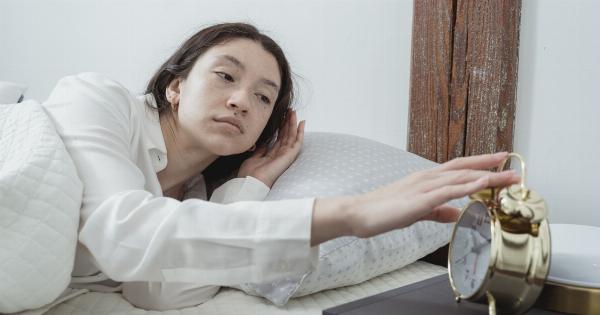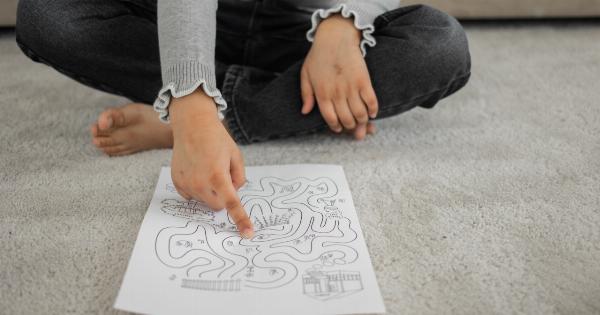Sleep is a fundamental aspect of life that affects our physical, mental, and emotional well-being. Yet, in our fast-paced and busy lives, many of us are not getting the quality and quantity of sleep we need.
Understanding the science behind sleep can help us make informed decisions about our sleep habits and prioritize our rest. In this article, we will explore the science of sleep and provide practical tips for getting the rest you need.
The Importance of Sleep
Sleep is essential for a healthy and fully functioning body and mind. It plays a crucial role in various bodily processes, including:.
- Restoration: During sleep, our bodies repair and rejuvenate themselves. Tissues are renewed, and growth hormones are released to help restore and build muscles.
- Memory Consolidation: Sleep plays a critical role in memory consolidation. It is during deep sleep stages that our brains process and strengthen newly acquired information, improving memory and learning.
- Regulation of Hormones: Sleep is intricately linked to hormone regulation. Lack of sleep can disrupt the balance of hormones that control appetite, metabolism, and stress response. This disruption can contribute to weight gain, mood swings, and an increased risk of chronic diseases.
- Emotional Well-being: Quality sleep is vital for regulating emotions and maintaining optimal mental health. Sleep deprivation can lead to irritability, moodiness, and an increased susceptibility to mental health disorders such as depression and anxiety.
- Immune Function: Sleep plays a critical role in supporting a healthy immune system. During deep sleep, our immune system releases cytokines, proteins that help fight infections, inflammation, and stress. Chronic sleep deprivation weakens the immune system, making us more susceptible to illnesses.
The Sleep-Wake Cycle: Understanding Circadian Rhythms
Our sleep-wake cycle is regulated by internal clocks called circadian rhythms. These rhythms are influenced by external cues such as light, temperature, and social cues.
The primary controller of our sleep-wake cycle is the suprachiasmatic nucleus (SCN) located in the brain’s hypothalamus.
When the SCN detects darkness, it signals the pineal gland to release the hormone melatonin, which makes us feel sleepy. Exposure to natural light inhibits melatonin production, keeping us awake and alert.
Disrupting our circadian rhythms can lead to sleep disorders, such as insomnia or jet lag.
The Stages of Sleep
Sleep is not a uniform, continuous state but consists of several distinct stages. These stages can be grouped into two main categories: REM (Rapid Eye Movement) sleep and NREM (Non-Rapid Eye Movement) sleep.
NREM Sleep
NREM sleep is divided into three stages:.
Stage 1: Light Sleep
This stage is the transition between wakefulness and sleep. During this stage, our brain produces theta waves, and our muscles begin to relax.
Stage 2: Sleep Spindles and K-Complexes
In this stage, our brain waves become slower, with occasional bursts of rapid brain activity known as sleep spindles and K-complexes. These bursts help protect and consolidate memories.
Stage 3: Deep Sleep
Also known as slow-wave sleep, stage 3 is the deepest and most restorative stage of NREM sleep. During this stage, our brain waves slow down even further, and our body engages in tissue repair, growth, and hormone release.
It is harder to wake up from stage 3 sleep, and if awakened, one may feel disoriented momentarily.
REM Sleep
REM sleep is characterized by rapid eye movements, increased brain activity, and vivid dreaming. It is during REM sleep that our brains consolidate learning, process emotions, and restore cognitive function.
REM sleep typically occurs 90 minutes after falling asleep and becomes longer in subsequent sleep cycles.
Tips for Healthy Sleep
Now that we understand the importance of sleep and the different stages it comprises, let’s explore some practical tips for getting the quality sleep you need:.
Establish a Consistent Sleep Schedule
Try to go to bed and wake up at the same time every day, even on weekends. This helps regulate your body’s internal clock and promotes better sleep quality.
Create a Relaxing Bedtime Routine
Engage in relaxing activities before bed, such as reading a book, taking a warm bath, or practicing meditation. Avoid stimulating activities or screens that emit blue light, as they can interfere with melatonin production.
Create an Optimal Sleep Environment
Make your bedroom conducive to sleep by ensuring a comfortable temperature, proper ventilation, and minimal noise and light. Invest in a quality mattress and pillows that provide adequate support.
Avoid Stimulants and Heavy Meals Before Bed
Avoid consuming caffeine and nicotine close to bedtime, as they are stimulants that can interfere with sleep. Additionally, try to avoid large, heavy meals close to bedtime, as they can cause discomfort and interfere with digestion.
Limit Exposure to Screens Before Bed
The blue light emitted by screens can suppress melatonin production and disrupt sleep. Try to avoid screens, such as smartphones, tablets, and television, for at least an hour before bed.
Exercise Regularly
Engaging in regular physical activity can promote better sleep quality. However, try to avoid exercising too close to bedtime, as the adrenaline and increased body temperature can make it harder to fall asleep.
Manage Stress and Anxiety
Practice stress management techniques, such as deep breathing exercises, mindfulness, or journaling, to help calm your mind before bed. If you find it challenging to manage stress on your own, consider seeking support from a therapist or counselor.
Avoid Napping Late in the Day
If you struggle with falling asleep or maintaining sleep at night, avoid napping late in the day. If you need to nap, keep it short (around 20-30 minutes) and aim to do it earlier in the afternoon.
Create a Sleep-Friendly Diet
Be mindful of your diet’s impact on sleep. Avoid consuming large amounts of fluid close to bedtime to minimize nighttime trips to the bathroom. Limit alcohol intake, as it can disrupt sleep cycles.
On the other hand, some foods, such as cherries, kiwis, and herbal teas, can promote better sleep quality.
Listen to Your Body
Above all, listen to your body’s signals and adjust your sleep routine accordingly. If you consistently feel tired or have persistent difficulty falling asleep, consider consulting a healthcare professional for further evaluation and guidance.
Conclusion
Sleep is undoubtedly a fascinating and essential aspect of our lives. Understanding the science behind sleep empowers us to make informed decisions and prioritize our rest.
By adopting healthy sleep habits and incorporating the tips mentioned above, you can create an optimal sleep environment and improve the quality and duration of your sleep. Remember, a good night’s sleep is not just a luxury; it is a necessity for your overall well-being.






























